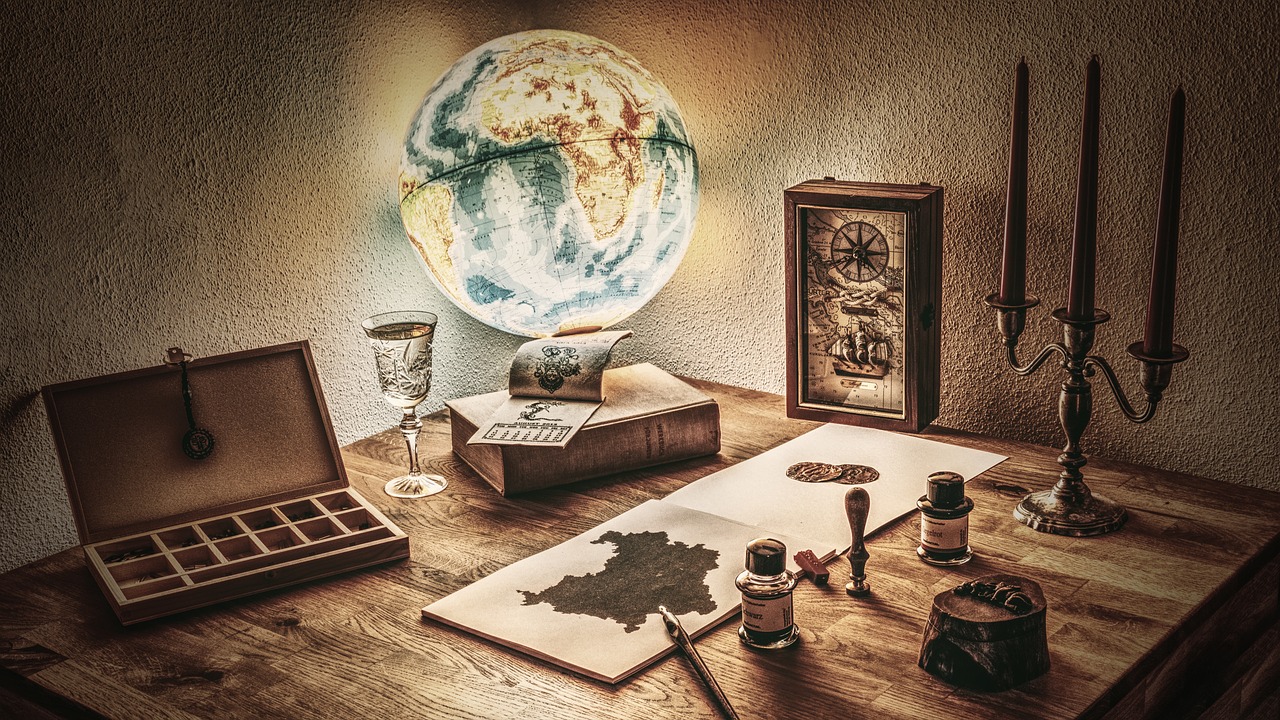Table of Contents
- 1 Early Maritime Cultures
- 2 Ancient Mediterranean Maritime Exploration
- 3 Ancient Indian Ocean Maritime Exploration
- 4 Ancient Chinese Maritime Exploration
- 5 Ancient Southeast Asian Maritime Exploration
- 6 Technological Advances in Ancient Maritime Exploration
- 7 Impact of Ancient Maritime Exploration
- 8 Conclusion
![]()
Maritime exploration has been a crucial aspect of human development, shaping cultures, economies, and geopolitical landscapes. From early seafaring communities to expansive trade networks, ancient maritime exploration set the stage for the interconnected world we live in today. This article delves into the history of maritime exploration, focusing on key civilizations and their contributions to the development of navigation and trade across the globe.
Early Maritime Cultures
Prehistoric Seafaring
The origins of maritime exploration can be traced back to prehistoric times when early humans ventured onto watercraft for fishing, trade, and exploration. Evidence such as ancient cave paintings and archaeological finds indicate that early seafarers used simple rafts and boats to navigate coastal and inland waters. These early mariners primarily explored their immediate environments but laid the groundwork for more sophisticated maritime practices.
Polynesians
One of the most remarkable early maritime cultures was the Polynesians, who mastered long-distance navigation across the vast Pacific Ocean. Using sophisticated techniques such as celestial navigation, ocean swells, and star maps, the Polynesians undertook epic voyages that led to the settlement of numerous islands across Polynesia. Their exploration was facilitated by the construction of outrigger canoes, which were remarkably resilient and well-suited for open-ocean travel. The Polynesians’ ability to navigate such vast distances with precision highlights their advanced maritime skills and their significant role in the history of maritime exploration.
Ancient Mediterranean Maritime Exploration
The Phoenicians
The Phoenicians, a Semitic-speaking people from the eastern Mediterranean, are often credited with pioneering many aspects of ancient maritime exploration. Originating from the coastal city-states of Tyre, Sidon, and Byblos in present-day Lebanon, the Phoenicians were renowned sailors and traders. They established a network of trade routes that extended throughout the Mediterranean and beyond. Notable achievements include the circumnavigation of Africa by Phoenician sailors under the command of the Pharaoh Necho II and the establishment of colonies such as Carthage in North Africa. Their development of the bireme, a type of ancient warship, and their contributions to navigation and cartography had a lasting impact on maritime exploration.
Ancient Greeks
The Greeks made significant contributions to maritime exploration through their colonization efforts and trade. Greek sailors and merchants established colonies and trading posts across the Mediterranean and Black Seas. One of the most famous Greek explorers was Pytheas of Massalia, who journeyed to the northernmost reaches of Europe and provided valuable accounts of his travels. The Greeks also advanced maritime knowledge through their development of nautical charts and their understanding of wind patterns and sea currents, which influenced subsequent maritime practices.
The Romans
Roman maritime exploration was integral to the expansion of the Roman Empire. The Romans built a powerful navy and developed extensive infrastructure, including ports and harbors, which facilitated their control over the Mediterranean Sea. Roman naval expeditions led to the annexation of territories across Europe, North Africa, and the Near East. The Romans’ strategic use of naval power enabled them to secure trade routes and establish dominance over the Mediterranean, shaping the region’s economic and political landscape.
Ancient Indian Ocean Maritime Exploration
The Indus Valley Civilization
The Indus Valley Civilization, flourishing around 3300-1300 BCE in what is now Pakistan and northwest India, was an early center of maritime trade. Archaeological evidence suggests that the Indus Valley people engaged in maritime trade with Mesopotamia, utilizing wooden boats and barges to transport goods. Their maritime activities were crucial for their trade network, which included the exchange of commodities such as cotton, beads, and metalwork.
Ancient Indian Mariners
Ancient Indian mariners played a pivotal role in the development of maritime trade routes across the Indian Ocean. By the 1st millennium BCE, Indian traders had established routes connecting the Indian subcontinent with East Africa, the Arabian Peninsula, and Southeast Asia. The monsoon winds were harnessed to facilitate these voyages, leading to the flourishing of trade and cultural exchanges. Indian sailors used ships equipped with sails and advanced navigational techniques to navigate the vast oceanic distances.
The Swahili Coast and Arab Traders
Arab traders were instrumental in connecting the Indian Ocean’s diverse regions. By the early medieval period, Arab navigators had established thriving trade routes along the Swahili Coast of East Africa, engaging in commerce with Indian, Chinese, and African traders. These interactions led to a vibrant exchange of goods, cultures, and ideas, significantly influencing the development of maritime trade in the Indian Ocean region.
Ancient Chinese Maritime Exploration
Early Chinese Shipbuilding and Navigation
China’s maritime history includes significant achievements in shipbuilding and navigation. The development of junks—sturdy, flat-bottomed ships with multiple masts and watertight compartments—enabled Chinese mariners to undertake long voyages. Early Chinese navigators used rudimentary compasses and celestial navigation techniques to explore and trade across the South China Sea and beyond.
The Han Dynasty
During the Han Dynasty (206 BCE – 220 CE), China expanded its maritime trade networks, particularly through the Maritime Silk Road. This network connected China with Southeast Asia, India, and the Arabian Peninsula, facilitating the exchange of goods such as silk, porcelain, and spices. Chinese expeditions during this period laid the groundwork for future maritime exploration and trade.
The Ming Dynasty
The Ming Dynasty (1368-1644) is renowned for its extensive maritime exploration under Admiral Zheng He. Zheng He led a series of seven grand voyages between 1405 and 1433, reaching as far as the eastern coast of Africa. These voyages demonstrated the Ming Dynasty’s naval capabilities and established China’s presence in the Indian Ocean. Zheng He’s expeditions fostered diplomatic and trade relations with various kingdoms and expanded China’s influence in the region.
Ancient Southeast Asian Maritime Exploration
The Austronesian Expansion
The Austronesian-speaking peoples were pivotal in the exploration and settlement of Southeast Asia and the Pacific. Their maritime skills enabled them to navigate vast distances and establish communities across the region. The Austronesians’ seafaring traditions included the use of outrigger canoes and sophisticated navigation techniques, which facilitated their migration and cultural diffusion.
The Srivijaya Empire
The Srivijaya Empire, centered in Sumatra, Indonesia, was a major maritime power from the 7th to the 13th centuries. Srivijaya controlled key trade routes through the Strait of Malacca and developed a prosperous trade network that linked the Indian Ocean with the South China Sea. The empire’s strategic location and naval prowess enabled it to thrive as a center of commerce and culture.
Technological Advances in Ancient Maritime Exploration
Shipbuilding Techniques
Ancient maritime cultures made significant advancements in shipbuilding, which were crucial for their exploration and trade. Innovations such as the Phoenician bireme, the Greek trireme, and the Chinese junk represented advances in ship design, enabling longer voyages and greater cargo capacity. These developments enhanced the capabilities of ancient mariners and facilitated their exploration of distant lands.
Navigation Tools and Methods
Navigational tools and methods evolved over time, significantly impacting maritime exploration. Early navigators relied on observations of celestial bodies, landmarks, and ocean currents to guide their journeys. The development of early maps and charts, such as those created by the Greeks and later by Arab scholars, provided valuable information for sailors and contributed to the growth of global navigation.
Impact of Ancient Maritime Exploration
Economic Impact
Ancient maritime exploration had a profound economic impact, expanding trade networks and facilitating the exchange of goods and resources. The establishment of trade routes connected diverse regions, enabling the flow of commodities such as spices, textiles, and precious metals. This exchange fostered economic growth and development across various civilizations.
Cultural Exchange
Maritime exploration also led to significant cultural exchange. The movement of people, goods, and ideas across different regions contributed to the spread of languages, religions, and artistic styles. The interactions between diverse cultures enriched societies and promoted mutual understanding.
Environmental and Social Impact
The expansion of maritime exploration had environmental and social consequences. Coastal environments were affected by increased human activity, including trade and settlement. Socially, maritime exploration led to changes in societal structures, including the rise of powerful maritime empires and the integration of previously isolated communities.
Conclusion
The history of ancient maritime exploration is a testament to human ingenuity and curiosity. From the early seafaring of prehistoric cultures to the expansive voyages of the Phoenicians, Greeks, and Chinese, maritime exploration played a crucial role in shaping the ancient world. The technological advances and cultural exchanges resulting from these explorations laid the foundation for the modern globalized world. As we reflect on these achievements, we gain a deeper appreciation for the enduring legacy of ancient maritime exploration and its impact on human history.
Share This





Be the first to comment